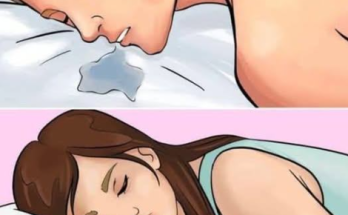Justice Ends Behind Bars: Arizona Man Who Set 2-Year-Old Daughter on Fire Dies in Prison
In a haunting and long-remembered case that sent shockwaves across the nation, the man responsible for one of the most horrific crimes in Arizona’s history has died behind bars. Jeffery Martin Egler, who was serving a life sentence without parole for murdering his 2-year-old daughter by setting her on fire, was pronounced dead in prison earlier this week. He was 50 years old.
The Arizona Department of Corrections confirmed that Egler died at the Arizona State Prison Complex in Florence. While the cause of death has not yet been officially released, authorities have stated that no foul play is suspected. Nevertheless, his passing brings a dark chapter to a quiet close — though the emotional scars he left behind will remain forever etched in the memories of those who knew the little girl he so horrifically betrayed.
A Father’s Vow Turned to Violence
The incident dates back to December 2015, when Egler, who had partial custody of his daughter, Alyssa, was scheduled to spend the Christmas holidays with her. According to court documents, he had promised the toddler a magical evening of Christmas lights, gifts, and warmth. Instead, he committed an act so cruel, it stunned even veteran law enforcement officers.
Witnesses testified that Egler picked Alyssa up from her mother’s house under the pretense of a holiday outing. He took her to a remote desert area on the outskirts of Tucson. There, in the darkness, he doused the child in gasoline and set her ablaze, leaving her to burn alive.
The motive? Prosecutors later argued that Egler was enraged over a custody dispute and used his daughter as a pawn in an act of twisted vengeance against his ex-partner. During the trial, the judge called it “one of the most depraved acts of cruelty ever committed against a defenseless child.”
The Arrest and Trial
Egler was arrested hours after the incident, showing no signs of remorse during questioning. The arresting officer later testified that Egler seemed eerily calm, asking for a cigarette and stating, “I did what I had to do.”
During his trial in 2017, jurors were shown heart-wrenching images and heard harrowing testimony. Forensic experts described the child’s injuries in painful detail, and firefighters who responded to the scene wept on the stand.
Egler’s defense team tried to argue mental illness, claiming he suffered from untreated trauma and a history of bipolar disorder. However, the jury rejected the insanity defense, pointing to premeditation and a disturbing collection of writings found in his apartment that detailed revenge scenarios and hatred toward his former partner.
He was convicted of first-degree murder, child abuse, and aggravated assault, and was sentenced to life in prison without the possibility of parole.
A Mother’s Unimaginable Grief
Alyssa’s mother, Renee Taylor, became an advocate for child protection laws after her daughter’s death. Speaking to reporters after the trial, she said:
“My daughter didn’t just die. She was tortured. By the man who was supposed to love and protect her. I’ll never stop seeing her little face in my dreams.”
She later worked with lawmakers to propose “Alyssa’s Law,” a piece of legislation aimed at tightening custodial supervision and requiring mental health evaluations in high-conflict family court cases. The bill gained traction but has yet to pass at the federal level.
Renee has remained largely out of the spotlight in recent years, but a family spokesperson confirmed that she was notified of Egler’s death and responded simply:
“It won’t bring Alyssa back. But at least now he can’t hurt anyone else.”
A Death That Closes a Dark Chapter
Egler’s death in custody has stirred complex emotions. For some, it marks the end of a deeply disturbing story — a small form of closure after nearly a decade of pain. For others, it has reopened old wounds.
Fellow inmates reportedly knew Egler’s backstory and often avoided or shunned him, even in prison — a place not known for mercy. One former corrections officer who had guarded him in the early years of his sentence said:
“He was cold. Always. Never smiled, never cried. But the other inmates… they knew what he did. He lived in fear every day.”
While the Arizona Department of Corrections insists that Egler died of natural causes, sources close to the prison say he had been in declining health for over a year, suffering from an untreated liver condition. His death was reportedly quiet, with no family listed to claim his body.
Public Reaction: Anger, Sorrow, and Reflection
Social media erupted with a mix of relief and anguish. While many users expressed satisfaction that Egler would never walk free, others reflected on the deeper tragedy: a beautiful, innocent life taken far too soon.
“Rest in peace, little Alyssa. The monster is gone. But your memory will never fade.”
— @JusticeForAlyssa on X (formerly Twitter)
Child advocacy groups are using the moment to re-emphasize the need for family court reform, mental health awareness, and protections for children in vulnerable situations.
Final Thoughts: A Life Snuffed Out, A Legacy of Pain
There are stories that chill you to the bone, and this was one of them. The betrayal, the brutality, and the complete absence of humanity left an entire community in mourning — not just for a little girl who died in unspeakable pain, but for the society that failed to protect her.
Jeffery Martin Egler is gone now — his final breath taken in the cold walls of a prison cell. No headlines. No legacy. No redemption.
But Alyssa, though she only lived two years, left behind something powerful: a call to awareness, to action, and to justice. Her name lives on in the laws being proposed, the parents being warned, and the children being shielded from monsters in disguise.



